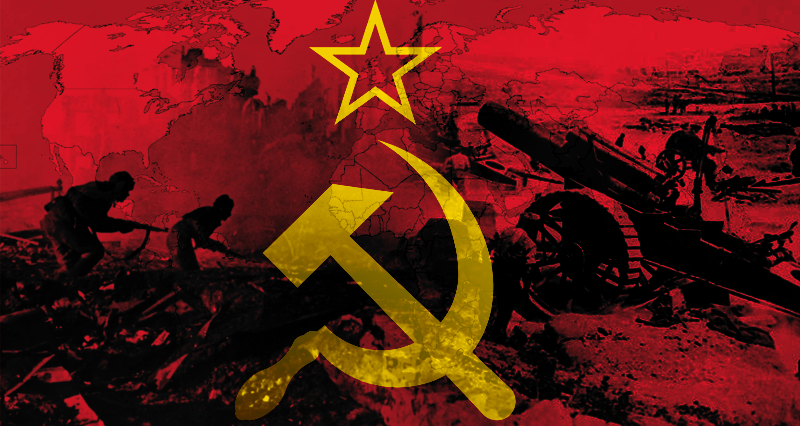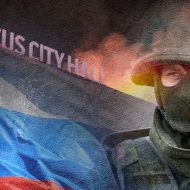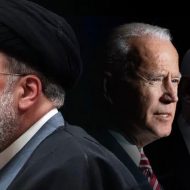Following Russia’s special military operation in Ukraine, a debate lived up again on the role of force and violence in history – especially concerning the history of Russia itself. United World International author has given a lengthy interview to Emrah Maraşo.
The interview was published first in Turkish. UWI presents it in chapters to our readers.
The 1905 Revolution was triggered by the massacre of 4600 workers during a march of Russian workers led by Father Gapon to petition the Tsar. In this case, reactionary violence triggered a revolution. Based on this example can we say that violence is dialectical?
The theory of the vanguard party
Actually yes. But some subjective factors must also be taken into consideration. That is to say, counter-revolutionary violence that oppresses and exploits the people does not alone give birth to the violence in opposition automatically. There needs to be an organized force, a force that can resist the violence as the subjective factor. This is one of the most important reasons for the birth of the vanguard party theory. “We need to have a structure that can stand against and resist the violence with equivalent resoluteness,” the theory argues. If the oppressive violence does not face an organized power, it can always persist. You need to be powerful and disciplined enough to defeat it or at least to challenge it.
When we look at the Russian revolutionaries: They were facing the Tsarist army and the centuries old state organization of Tsarism. There were also the armies, the press and ideological hegemony of British imperialism.
The question of spontaneity
In 1905, if there had been no Bolshevik party, any organized movement, people would have been afraid even to go out of their homes after the deaths of 4600 workers. There was an organized experience coming from the Decabrists, Narodniks and peasant revolts in the face of Tsarist violence. “4600 people were massacred, everyone stood up against it and then the revolutions of 1905 and 1917 happened”: This is a very misleading description, taking spontaneity as granted.
The violence of the US continues on the international plane today. This outrages everybody all over the world. But how do you stop it? Only by building an equivalent power. That is why international alliances are important today.
The US is threatening Türkiye. What can be done against this? First of all, it is necessary to address internal dynamics correctly and build unity. But this alone is not sufficient. Secondly, since it is not possible to deter a major threat like the US on your own you need a counter-balancing. With whom can Türkiye do this? Primarily with Russia and Iran.
‘Just war’ and ‘unjust war’
Until the First World War socialists in the Second International declared their opposition to the war in several resolutions, but then most of them sided with their own bourgeoisie. On the other hand Lenin pursued an anti-war strategy. Is there any similarity between today’s calls of “no to war” and Lenin’s strategy?
No, because for Lenin, most importantly, there is a distinction between “just war” and “unjust war”. Therefore, it was just to say “no to war” in England, France and Russia at that time. But in Türkiye it was not, because Türkiye was not the subject of the imperialist division, but the target of it.
Developments in the whole world should be analyzed through this perspective. Iraq’s war against the US was a just war while the US occupation of Iraq was an unjust one. It was right to say “no to war” in the US, but wrong in Iraq. It was also wrong in Türkiye because the fate of Iraq and Türkiye are one and the same in the face of US aggression.
The slogan ‘no to war’ as siding with imperialism
Resistance to imperialist war must be encouraged everywhere, because weakening, stopping or repulsing imperialist violence in one single region or country gives leverage to all those facing the imperialist threat everywhere in the world. This is why the slogan “no to war” which is deemed to be applicable to any without distinguishing between just and unjust wars, plays into the hands of imperialism. Because in doing so you undermine the war against imperialism and you put the imperialist war and the war against imperialism on the same footing. If you equate Türkiye’s National War of Independence with the British occupation of Istanbul, you end up siding with the status quo and supporting the British.
For example lastly in Karabakh issue, Armenia’s occupation of Karabakh was unjust but the liberation of Karabakh was a just one. It was a war to liberate occupied territories.
In Türkiye, there are opinions that “we are neither pro-NATO nor Eurasianist” and “Yes, the US and NATO are imperialist, but Russia is no different from them”. What do you think about the claim that Russia is imperialist?
The US against Türkiye, Russia and China
Russia’s special operation in Ukraine is an operation to stop imperialist aggression and thus a just war. The US is plotting to encircle Türkiye, Russia and China in various ways. Any move breaking out or repulsing the imperialist encirclement would produce favorable outcomes for all the countries facing the imperialist threat.
From Türkiye’s perspective, if the ground from US plots in Ukraine is cut out, it will undermine US plots in Syria, the Eastern Mediterranean and the Aegean as well. If the US collaborators in Ukraine lose, so do the US collaborators in Türkiye. It is the same for China. If Türkiye gains victory in Syria and the Eastern Mediterranean, China will be in a more favorable position with regard to Taiwan. If China achieves success on Taiwan, Russia will ensure its security more easily.
The Soviet Union and independentists in Türkiye
In Türkiye’s National War of Independence, Kazım Karabekir sat by the telegraph waiting for news of the Red Army’s victory on the Poland front. When they received the good news, they leaped for as if fans of a team. They shared the news with all their soldiers. They thought, “The Red Army wiped out the imperialist collaborators on the Polish front, no they will come here to our front and we will wipe out the Dashnaks together”. Türkiye was not fighting on the Polish Front, nor had they formed a common bloc with the Soviet Russia. Yet they were aware that if the Poles retreated, the Dashnaks and Greece too would retreat.
From this point of view, there is a confrontation in the world: The Atlantic and Eurasia. Any step backward for the Atlantic means progress for the Eurasian countries. For example, if Argentina achieves success in the Falkland Islands it would also bring about conditions favorable to Türkiye.
Some socialist groups in Türkiye today are saying, “Yes, we are mainly against NATO, but Russia is also imperialist. Therefore, we are also against it and its occupation in Ukraine.”
Russia: From the camp of the sharers to that of the shared
The Soviet Russia was a social imperialist country but Russia shifted from the camp of the sharers to the camp of the shared with the collapse of 1991. That is of crucial importance. Russia didn’t change camps on purpose. That is of crucial importance. It is like a football team being relegated from the first league to the second one. There were two superpowers among the sharers: The Soviet Union and the US. But when the Soviet Union fell in the Cold War, it also fell from the camp of sharers to the camp of the shared. The Soviet Union was divided, then divided again, and faced the danger of division in Chechnya. Remember that Yugoslavia was also disintegrated.
Russia is facing encirclement by NATO. Russia is not an imperialist country. On the contrary, imperialists want Russia to get down on knees. And there is also that Russia is not the Russia of the 1990s, but a recovering force.
What happens if Russia and Türkiye pursue an expansionist policy
Russia cannot confront the threats with an expansionist policy. In order to resist, Russia needs China, Türkiye and Iran – the countries of the region with deep-rooted state traditions. The same goes for Türkiye, Iran and China. Therefore, the relationship between them must be based on equality. There can be no unity without equality. Equality excludes expansionism.
Let’s reflect: If Russia becomes expansionist, it would expand to the detriment of Türkiye, China and Iran. Can Russia face the current threat without China, Türkiye and Iran? The same applies to Türkiye. If Türkiye tries to expand to the detriment of Russia, it would fall prey to the US.
In all, the most decisive difference between today’s Russia and the pre-1991 Russia is the fact that it has fallen into the camp of the shared, and that its destiny is now aligned with that of the oppressed, shared and developing countries. And unless Russia build relations with these countries on the basis of equality, it has no chance of standing up to the US.









Leave a Reply